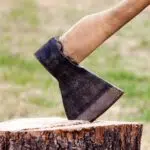National School Grounds Week is celebrated from June 13 to 17 annually. It advocates for outdoor play and learning for children and appreciates the tireless work of countless groundskeepers who work hard to maintain the grounds. The U.K. children’s charity ‘Learning Through Landscapes’ organizes the National School Grounds Week, which strives to increase the duration of outdoor play for children, thus allowing them to connect to the natural environment and be physically active. Through play, children learn the value of hard work and increase their self-esteem and social skills.
History of National School Grounds Week
Currently, sport is vital to children’s development and education, which was not always so. In the early nineteenth century, sports and games were of no interest to the headmasters of public schools.
In 1845, Steeplechase was first played in Eton and had reached Cheltenham and Harrow by 1853. It reached Rugby and Winchester in 1856 and 1857, respectively. Soon, football also started to be played. The first documented soccer match at Winchester was in 1825, which comprised 25 players on each side, with the goal post being a simple line cut in the earth 27 yards away. It was a very rough game as it recorded broken bones at Winchester. Soccer largely remained an internal game at Winchester till the middle of the nineteenth century. With the standardization of rules, the games between schools became frequent. Representatives from the schools met at Cambridge University in 1848 to standardize the games. The representatives frequently met to share their version of football for several years, playing one half with one set of rules and then swapping it in the second half. Cambridge rules were later noted and adopted by Eton, Harrow, Rugby, Shrewsbury, and Winchester school teams.
As the century progressed, the interest in sports started growing. The Clarendon Commission of 1864 commended the sporting activities; according to Thomas Arnold, Head of Rugby School (1828 — 1924), sports helped develop discipline and morals among gentlemen. By the mid-nineteenth century, sports had steadily gained popularity such that schools started hiring sports masters. Essential components of school sports were cricket, rowing, tennis, and athletics, which encouraged camaraderie and cooperation. Boys who were not just good at the game but also at embodying the noble spirit of the game were considered amateur gentlemen.
National School Grounds Week timeline
Sports and games are of no interest to headmasters of public schools.
Soccer is played at Winchester for the first time, comprising 25 players; the goal post was a line cut on the earth.
Steeplechase is played for the first time in Eton before reaching Cheltenham and Harrow.
Interest in sports gradually grows; Thomas Arnold, Head of Rugby School, notes that sports helped develop discipline and morals among students.
National School Grounds Week FAQs
What is Grounds week?
It’s a week that highlights the role of grounds staff and volunteers in making sports accessible.
How do schools organize sports week?
Teachers get involved in coordinating events for the games.
What is the importance of sports day?
Sports help students to build social skills and set positive relationships.
National School Grounds Week Activities
Research and educate yourself
Research about the benefits of sports, particularly for school students. Find ways in which it benefits growing school children.
Spread awareness
Spread awareness about the positive impact of sports on students. Tell people why students should be encouraged to play sports.
Thank the hard work people
Appreciate people who worked hard for years to make sports available to students. Thank the hard-working groundskeepers who work hard to maintain the ground.
5 Facts About The Benefit Of Sports
It promotes good health
Sports promote fitness, and regular indulgence in sports can help develop a healthy heart and strong bones and manage stress levels.
It helps in developing social skills
It contributes to the social development of students by helping them build leadership skills.
It develops discipline
Sports teach students to develop discipline by following the rules and regulations of the game, coach, and captain while also working steadily to reach their goals.
It has academic benefits
Students who play sports are likely to attend college and maintain a higher GPA than those who don’t.
It develops patriotism
It ignites feelings of unity and pride toward the nation and encourages the need to work hard for the country.
Why We Love National School Grounds Week
It celebrates sports
This week celebrates sports and the hard work of the people who play them. It also recognizes the groundskeepers who keep the ground in perfect condition for students.
It promotes healthy habits
It supports the healthy habit of exercise. It promotes good health and values.
It unites people
Sports bring people together from different places. It unites people under a mutual love and respect for sports.
National School Grounds Week dates
| Year | Date | Day |
|---|---|---|
| 2025 | June 13–17 | Friday–Tuesday |
| 2026 | June 13–17 | Saturday–Wednesday |
| 2027 | June 13–17 | Sunday–Thursday |
| 2028 | June 13–17 | Tuesday–Saturday |
| 2029 | June 13–17 | Wednesday–Sunday |


















